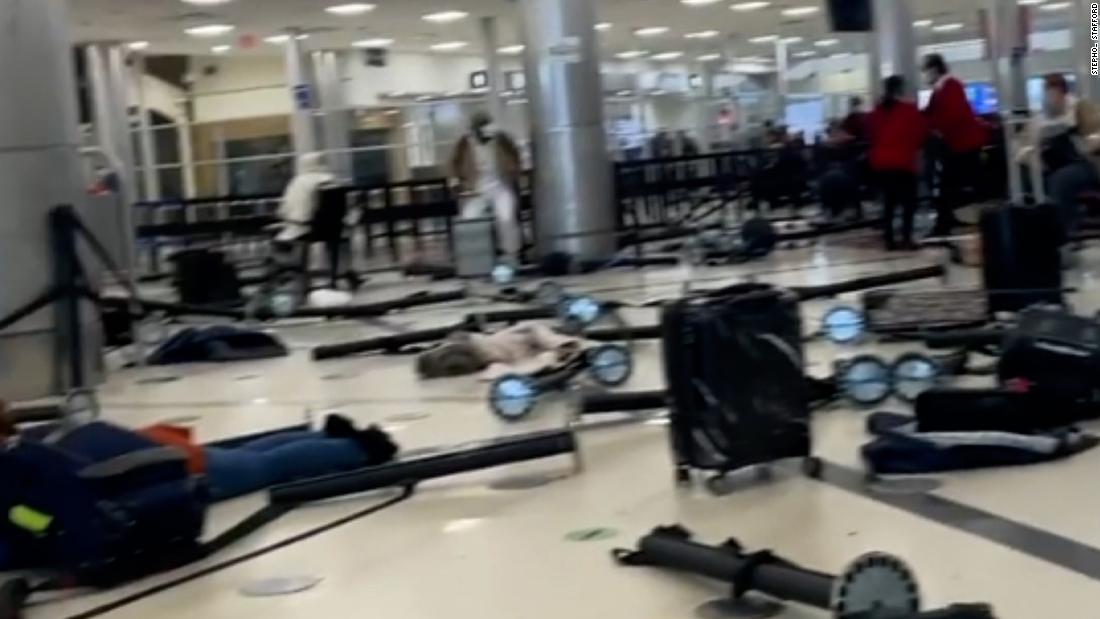FDA authorizes first oral antiviral for treatment for Covid-19
1:55 p.m. ET, December 22, 2021 FDA authorizes first antiviral pill for treatment for Covid-19 From CNN's Ben Tinker, Jamie Gumbrecht and Amanda Sealy Paxlovid is seen manufactured in Ascoli, Italy, in this undated handout photo. (Pfizer/Handout/Reuters) The US Food and Drug Administration on Wednesday authorized the first oral antiviral treatment for Covid-19: Paxlovid, a pill made by Pfizer. This is the first antiviral Covid-19 pill authorized for ill people to take at home, before they get sick enough to be hospitalized. Paxlovid combines a new antiviral drug named nirmatrelvir and an older one called ritonavir. Last week, Pfizer released updated results that showed the treatment cut the risk of hospitalization or death by 89% if given to high-risk adults within a few days of their first symptoms. If given within the first five days of symptoms, the efficacy was similar: 88%. “Today’s authorization of PAXLOVID represents another tremendous example of how science will help us ultimately defeat this pandemic, which, even two years in, continues to disrupt and devastate lives across the world. This breakthrough therapy, which has been shown to significantly reduce hospitalizations and deaths and can be taken at home, will change the way we treat COVID-19, and hopefully help reduce some of the significant pressures facing our healthcare and hospital systems,” Pfizer Chairman and CEO Albert Bourla said in a statement . “Pfizer stands ready to begin delivery in the U.S. immediately to help get PAXLOVID into the hands of appropriate patients as quickly as possible.” Some more background: In November, the Biden administration announced that it would purchase 10 million treatment courses for $5.295 billion. A five-day course of Paxlovid includes three pills given twice a day. President Biden said he was encouraged by the “promising data” from Pfizer and said the drug would “mark a significant step forward in our path out of the pandemic.” He called Paxlovid a “potentially powerful tool in our fight against the virus, including the Omicron variant," but stressed that getting vaccinated and receiving a booster shot remained “the most important tools we have to save lives.” Separately, Merck has requested emergency use authorization for its antiviral pill, molnupiravir. It was narrowly recommended by FDA’s advisers in a 13-10 vote at the end of November after data showed it cut the risk of hospitalization or death by 30% among high-risk adults. This was lower than an earlier analysis suggesting that number could be around 50%. The FDA has not announced whether it will authorize the treatment. Remdesivir, sold under the brand name Veklury, is the only antiviral approved by FDA for treatment of Covid-19. It's given intravenously, not as a pill that can be taken at home. 11:55 a.m. ET, December 22, 2021 2022 will be off to a "much weaker start" than predicted, economist says From CNN's Aditi Sangal Given the rapid rise of Covid-19 cases across the United States, 2022 will be off to a "much weaker start" than predicted earlier, according to Moody's Analytics Chief Economist Mark Zandi. "Before Omicron was on the scene, I thought first quarter GDP growth, that's the value of all things that we produce, would be strong. It would grow something like 5%, which is a very strong growth rate. But now, I think it's probably going to be closer to 2%. We obviously need to see what else is going on with Omicron," he told CNN. The Delta variant has already impacted the US economy in the summer of 2021, with GDP growth of 2% instead of the earlier predicted 5-6%, Zandi said, adding that he expects Omicron to do as much damage, especially given the example of the variant's impact in the United Kingdom. If President Biden's Build Back Better legislation is entirely shelved, "that's going to cut at least a half a percentage point off of growth and probably a bit more in calendar year
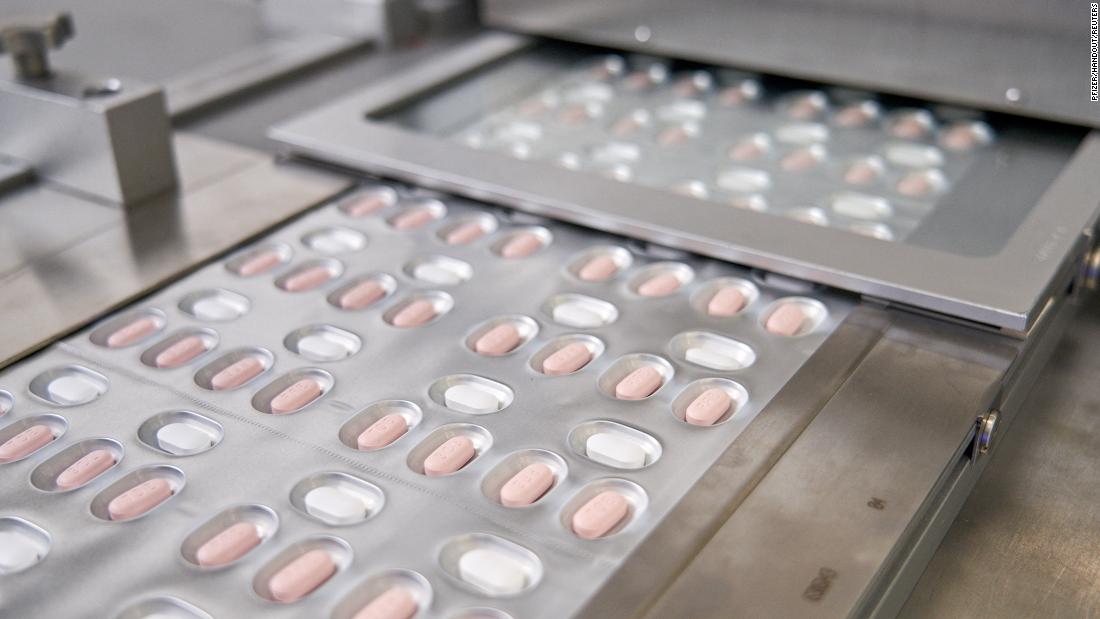
FDA authorizes first antiviral pill for treatment for Covid-19
From CNN's Ben Tinker, Jamie Gumbrecht and Amanda Sealy
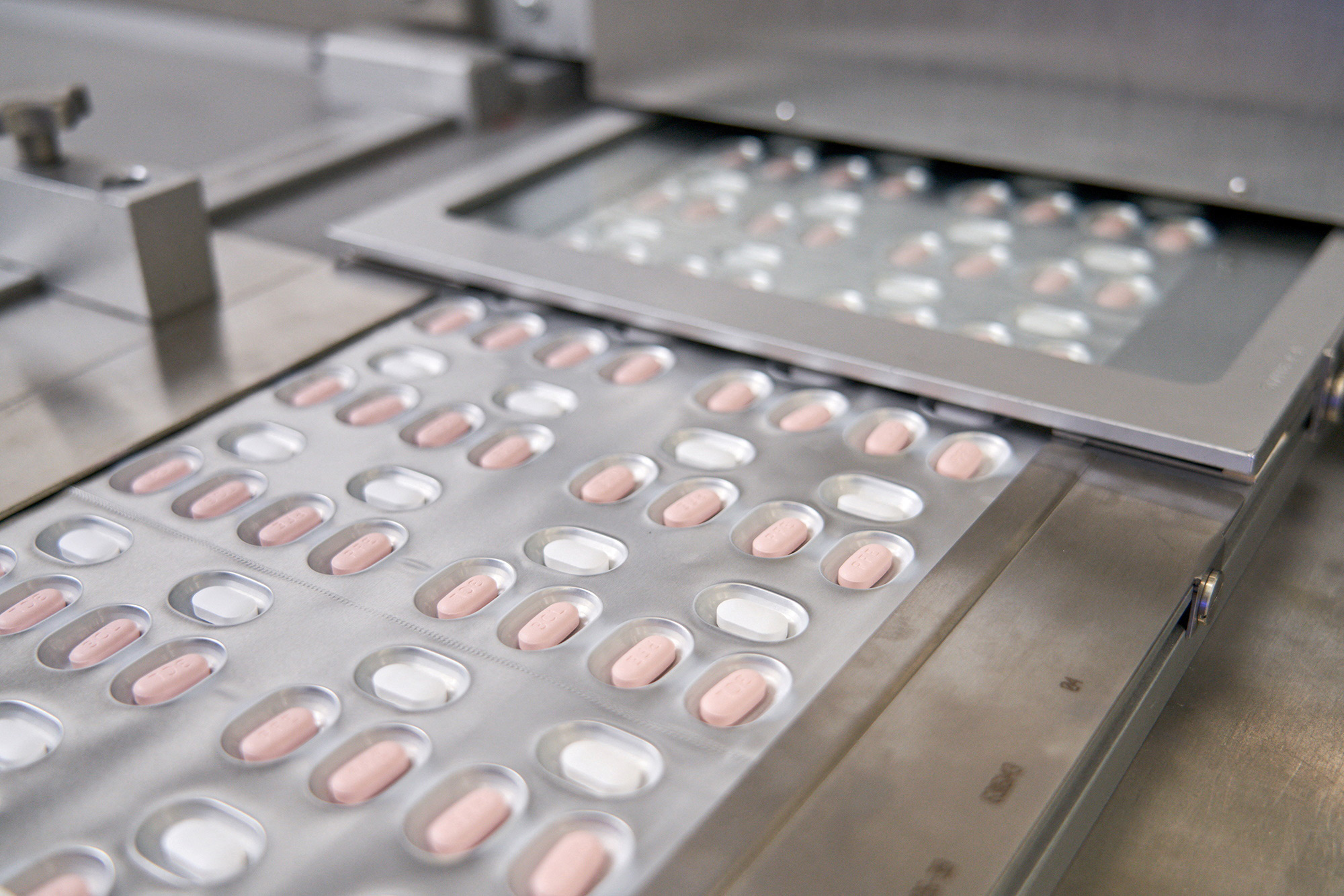
The US Food and Drug Administration on Wednesday authorized the first oral antiviral treatment for Covid-19: Paxlovid, a pill made by Pfizer.
This is the first antiviral Covid-19 pill authorized for ill people to take at home, before they get sick enough to be hospitalized.
Paxlovid combines a new antiviral drug named nirmatrelvir and an older one called ritonavir.
Last week, Pfizer released updated results that showed the treatment cut the risk of hospitalization or death by 89% if given to high-risk adults within a few days of their first symptoms. If given within the first five days of symptoms, the efficacy was similar: 88%.
“Today’s authorization of PAXLOVID represents another tremendous example of how science will help us ultimately defeat this pandemic, which, even two years in, continues to disrupt and devastate lives across the world. This breakthrough therapy, which has been shown to significantly reduce hospitalizations and deaths and can be taken at home, will change the way we treat COVID-19, and hopefully help reduce some of the significant pressures facing our healthcare and hospital systems,” Pfizer Chairman and CEO Albert Bourla said in a statement . “Pfizer stands ready to begin delivery in the U.S. immediately to help get PAXLOVID into the hands of appropriate patients as quickly as possible.”
Some more background: In November, the Biden administration announced that it would purchase 10 million treatment courses for $5.295 billion. A five-day course of Paxlovid includes three pills given twice a day. President Biden said he was encouraged by the “promising data” from Pfizer and said the drug would “mark a significant step forward in our path out of the pandemic.”
He called Paxlovid a “potentially powerful tool in our fight against the virus, including the Omicron variant," but stressed that getting vaccinated and receiving a booster shot remained “the most important tools we have to save lives.”
Separately, Merck has requested emergency use authorization for its antiviral pill, molnupiravir. It was narrowly recommended by FDA’s advisers in a 13-10 vote at the end of November after data showed it cut the risk of hospitalization or death by 30% among high-risk adults. This was lower than an earlier analysis suggesting that number could be around 50%. The FDA has not announced whether it will authorize the treatment.
Remdesivir, sold under the brand name Veklury, is the only antiviral approved by FDA for treatment of Covid-19. It's given intravenously, not as a pill that can be taken at home.
2022 will be off to a "much weaker start" than predicted, economist says
From CNN's Aditi Sangal
Given the rapid rise of Covid-19 cases across the United States, 2022 will be off to a "much weaker start" than predicted earlier, according to Moody's Analytics Chief Economist Mark Zandi.
"Before Omicron was on the scene, I thought first quarter GDP growth, that's the value of all things that we produce, would be strong. It would grow something like 5%, which is a very strong growth rate. But now, I think it's probably going to be closer to 2%. We obviously need to see what else is going on with Omicron," he told CNN.
The Delta variant has already impacted the US economy in the summer of 2021, with GDP growth of 2% instead of the earlier predicted 5-6%, Zandi said, adding that he expects Omicron to do as much damage, especially given the example of the variant's impact in the United Kingdom.
If President Biden's Build Back Better legislation is entirely shelved, "that's going to cut at least a half a percentage point off of growth and probably a bit more in calendar year 2022," Zandi said.
"That's consequential ... The folks getting checks in December aren't going to get money in January. That's going to be a hit to the economy right away," he said Wednesday. "I think at this point we should focus on the growth aspects [of the legislation.] I don't think inflation is going to be the issue people think it is."
Cruise ship with 7 Covid-19 cases in Colombian port under lockdown
From CNN's Stefano Pozzebon and Valentina DiDonato

A total of seven positive Covid-19 cases have been detected aboard the Seven Seas Mariner cruise ship, the Colombia's Cartagena Department of Health Authority (DADIS) announced Wednesday.
Among the seven positive cases are six cruise members and one tourist who are in quarantine. It is not clear if the seven Covid-19 cases on the ship are of the Omicron variant.
“Immediately after receiving the information, the cruise operation contingency protocol was activated and determines if the infected will remain isolated in quarantine inside the ship,” reads the press release from DADIS.
All other travelers and crew members on the ship must remain onboard due to the "epidemiological risk" until further notice, DADIS said.
DADIS also stated the outbreak does not create a risk for the city.
On Monday, the first three cases of the Omicron variant were identified in Colombia according to the country’s National Institute of Health.
In a video posted on Twitter, Health Minister Fernando Ruiz said that all three cases were travelers coming from the United States and Spain. Two of the cases are in the city of Cartagena and one case is in the city of Santa Marta.
UK reports more than 100,000 daily Covid-19 cases for the first time since pandemic began
From CNN’s Arnaud Siad
The United Kingdom reported 106,122 Covid-19 cases on Wednesday, crossing the 100,000 threshold for the first time since the pandemic began, according to government figures.
The UK has seen a 58.9% increase in confirmed cases in the last seven days.
On Tuesday, British Prime Minister Boris Johnson said there will be no further Covid-19 restrictions brought in for England before Christmas, adding that there is not currently "enough evidence" to justify tougher measures.
He did not rule out bringing in any further measures after Christmas, however, adding “if the situation deteriorates we will be ready to take action if needed.”
CNN's Livvy Doherty and Lauren Kent contributed reporting to this post.
Miami-Dade mayor announces new measures to address "very alarming rise in cases" of Covid-19
From CNN’s Gregory Lemos
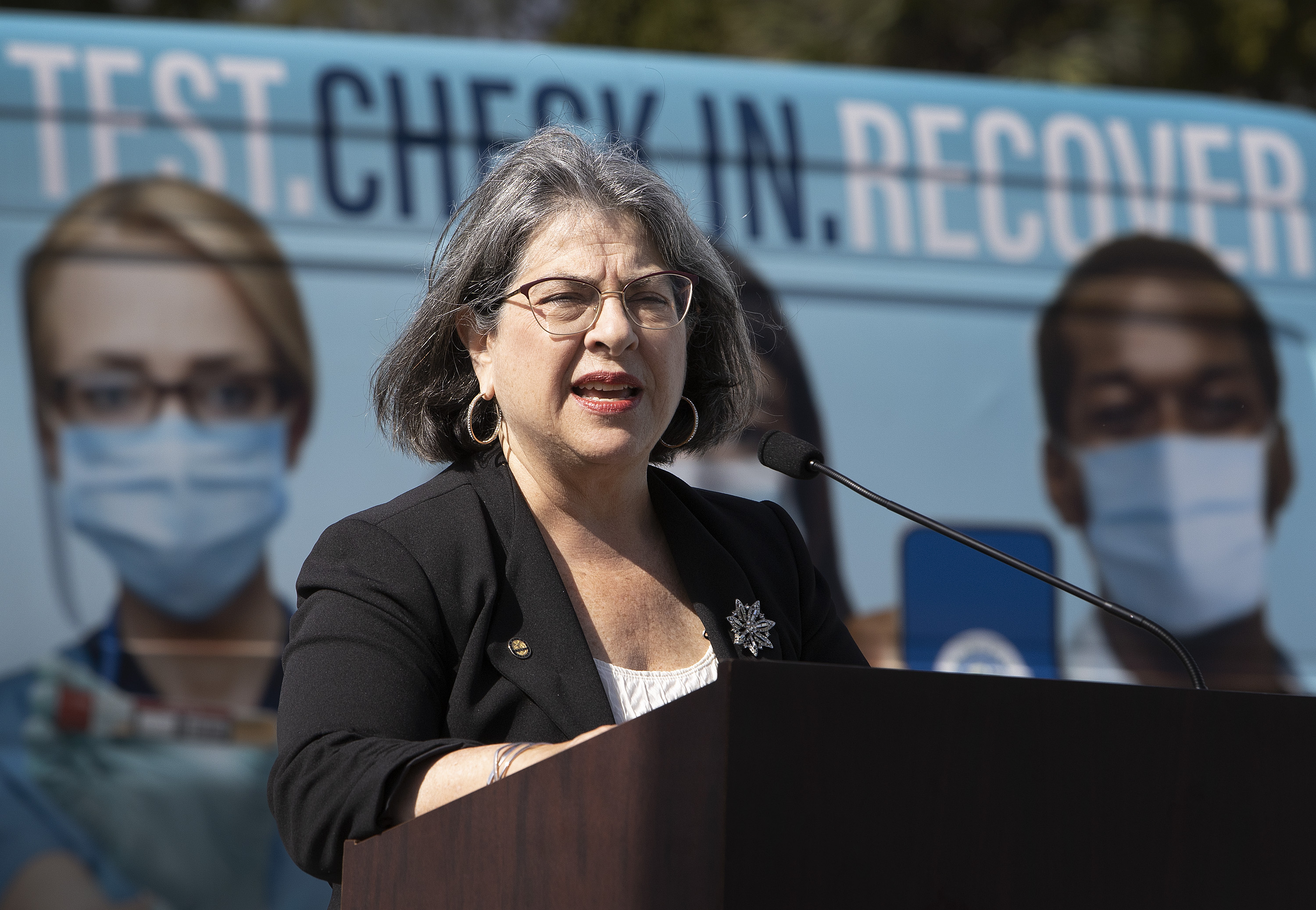
The mayor of Miami-Dade announced “new and expanded measures” to address “the very alarming rise in cases” of Covid-19.
Miami-Dade Mayor Daniella Levine Cava told reporters during a press conference Wednesday that the county is expanding testing by extending hours and opening three to five additional sites.
“Over the last several days we’ve seen over 200% increase in the demand for testing across the county,” Levine Cava said, adding the county is testing between 40,000 and 50,000 people a day.
Levine Cava also announced she is reimplementing the indoor mask mandate in county buildings, effective immediately.
“Taking this extra step, given the surge in Omicron, is a common-sense measure that will reduce transmission especially around the holidays,” she said.
Additionally, the mayor said she has requested more monoclonal antibody treatments from the state health department and the federal government. Levine Cava said the county will distribute thousands of at-home testing kits and is laying the groundwork to provide Pfizer’s antiviral pills as soon as they are approved and available.
The mayor said the county will continue measures such as on-site vaccinations for nursing home residents, testing wastewater, and requiring hospitals to report on daily Covid-19 case counts.
Serious adverse effects from Covid-19 vaccines are rare, another study affirms
From CNN's Deidre McPhillips
Most people who have been vaccinated against Covid-19 experience some side effects, but most are mild or very mild, and serious adverse effects are rare, according to a study published Wednesday in the medical journal JAMA Open Network.
After receiving a second dose of the Pfizer/BioNTech or Moderna vaccine or one dose of the Johnson & Johnson vaccine, about 80% of people reported some side effects – the most common being fatigue, muscle pain, headache and chills. But only 0.2% of people reported experiencing an allergic reaction or anaphylaxis after full vaccination – a total of 27 people out of more than 11,000 responses.
For this study, researchers from the University of California, San Francisco, conducted daily, weekly and monthly surveys about health and Covid-19-related events among an online cohort of adults between March 26 and May 19, 2021. The survey included nearly 20,000 participants, though not all participants responded to all questions.
The study also found that there was a “strong association” to adverse reactions to the Covid-19 vaccine among those who reported being infected with Covid-19 prior to being vaccinated.
People who received the Moderna vaccine were about twice as likely to report experiencing side effects than those who received the Pfizer/BioNTech vaccine, as were women. Those who received the J&J vaccine had lower odds of adverse effects, along older people and those with asthma.
More on the study : The researchers note that while the surveyed group was diverse, rural residents and people reporting lower subjective social status are underrepresented. Also, not all participants responded to all surveys, which may affect results.
New York senator says he's asking FEMA for 100 more mobile testing sites for his state
From CNN's Laura Ly
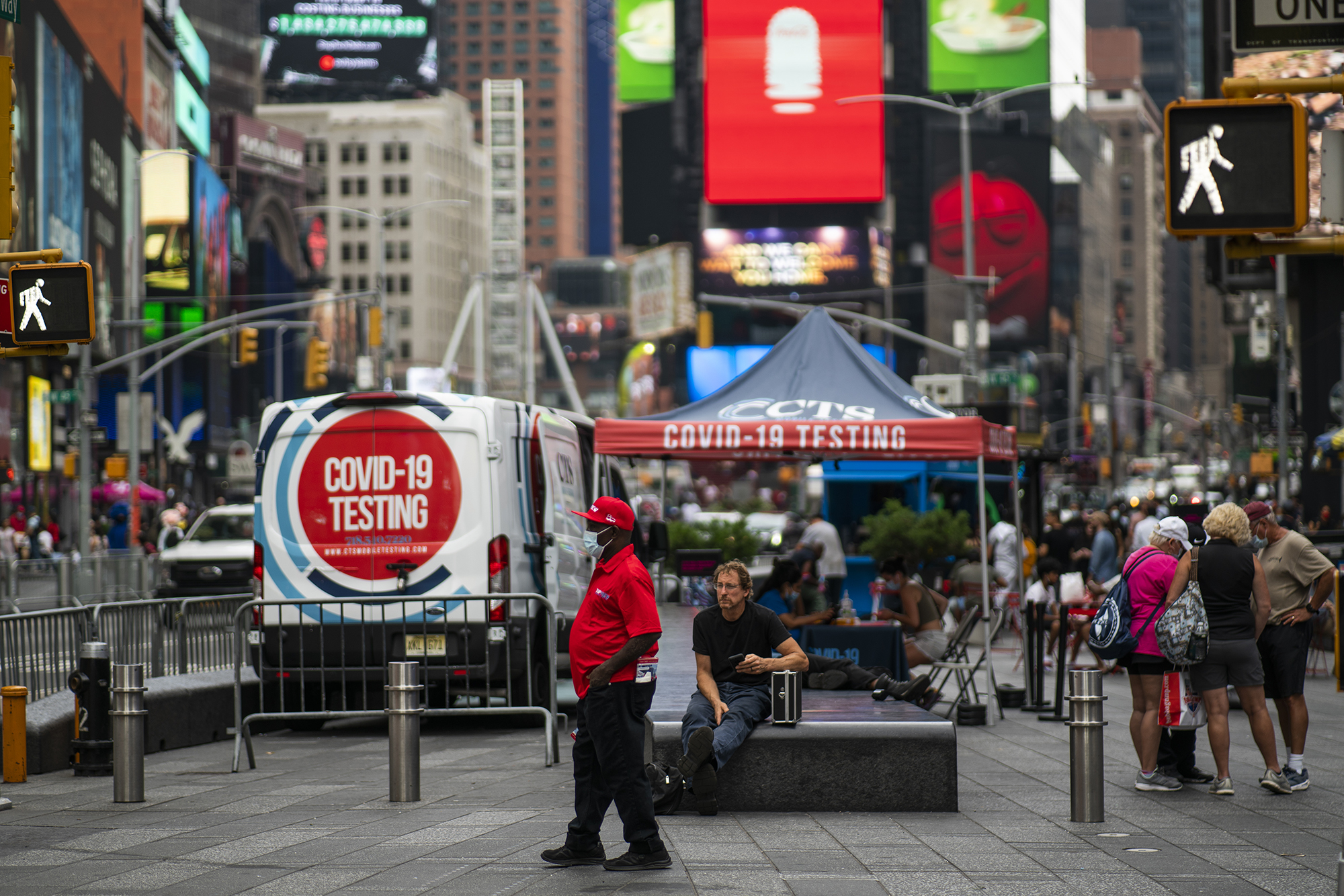
New York Sen. Chuck Schumer, the Senate majority leader, said he’s sending a letter to the Federal Emergency Management Agency (FEMA) requesting 100 more Covid-19 mobile testing sites for New York.
Schumer made the announcement during a Wednesday morning press conference with New York City Mayor Bill de Blasio.
He said that although FEMA has announced that they are sending six additional testing sites, New York needs more.
“Today they said they’re sending six, that ain’t close to enough,” Schumer said. “We can beat this crisis if we’re smart and right on the ground…we need these 100 mobile sites and we need FEMA to do it ASAP.”
Another member of US Congress tests positive for Covid-19
From CNN's Manu Raju
Rep. Antonio Delgado, a Democrat from New York, announced Wednesday that he has tested positive for Covid-19, one of several members of Congress to announce they are positive in the past several days.
Delgado said he is vaccinated and boosted.
GOP Rep. Nicole Malliotakis of New York tested positive for Covid-19 on Monday, her communications director Natalie Baldassarre tells CNN.
On Sunday, three other Democratic members of Congress announced that they have breakthrough coronavirus infections.
Sens. Elizabeth Warren of Massachusetts and Cory Booker of New Jersey as well as Rep. Jason Crow of Colorado shared that they had tested positive for Covid-19 via tweets from their official accounts.
The House and Senate are not in session at this moment.
See Rep. Delgado's full statement:
CNN's Greg Clary and Annie Grayer contributed reporting to this post.
New York City is adding additional testing capacity and hospitals are limiting visitors following outbreak
From CNN's Kristina Sgeuglia
New York City is adding additional testing capacity to grapple with the demand, and hospitals are tightening restrictions on visitation as Omicron continues to spread at a rapid pace, officials said Wednesday.
Mayor Bill de Blasio said the city is adding seven additional city-run Covid-19 testing sites — bringing the total up to 119 city-run locations — and adding an additional five sites for the sole purpose of handing out at-home tests kits beginning Thursday.
This comes as the head of NYC’s 11 public hospitals says they are restricting visitors following an “outbreak” that they believe is connected to a visitor.
The 119 testing sites include fixed sites and mobile distribution all around the five boroughs, de Blasio said.
At the city-run testing locations, de Blasio says “lot of them do not have big lines thankfully and are very good at getting you a quick turnaround time.”
These locations are in addition to partner and private sites. The goal is to minimize lines, he said.
New York Senator Chuck Schumer said he’s sending a letter to FEMA requesting 100 more Covid-19 mobile testing sites for New York.
CEO of Health + Hospitals Mitch Katz acknowledged “some challenges in meeting the demand,” with regards to testing.
“Today we are expanding hours on all our health and hospitals sites from 7 a.m. to 7 p.m.,” he said.
This has been made possible by going virtual for ambulatory care visits so that nurses and staff from clinics can be available in testing areas, he said.
Katz also said they have acquired a significant number of testing kits to distribute to those who feel comfortable testing at home.
For a temporary period, the city’s 11 public hospitals will also “be tighter about restricting visitors,” Katz said.
“We’ve had a recent outbreak in one of our hospitals that we think is related to visitors, not of course their fault, theres so much transmission going on in NYC now because of Omicron, and so for a short while, while we get the situation under control, we’re going to have limited visitation,” Katz said.
Certain exceptions will be made, he said, including for women in labor who will be able to bring someone with them.
He also noted for end of life hospice situations and in the case of sick children, family will be permitted.
“In order to make sure we don’t cause more disease we need to limit the number of visitors,” Katz said.

 Landwebs
Landwebs 







